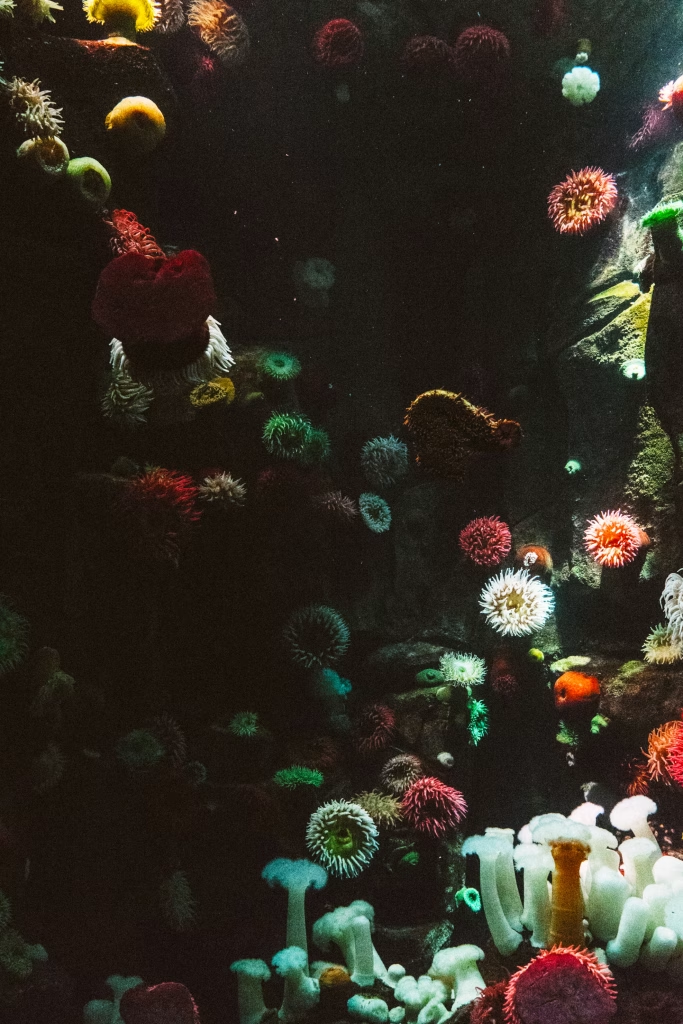Large-scale development projects, innovative green technologies, artificial intelligence, and trips to Mars are often seen as central solutions to the climate crisis leading to diverse socio-ecological and economic implications. Despide their inconsistencies and conflicted outcomes, their influence is so strong that our present approaches and vision for the future seem constrained by them. This short essay aims to explore opportunities and entry points that could mobilise personal and collective transformations in how we think and act, with the goal of fostering a more ecological and socially just response to the climate crisis.
I will selectively focus on the role of education in challenging dominant ideas about climate solutions. This is because Education for Sustainable Development dominates both formal education, such as schools and universities, and non-formal education, such as organisations and other institutions. As Helen Korpina has highlighted, there are some of the paradoxes inherent in Sustainable Development and Education for Sustainable Development that make us think if Education for Sustainable Development is desirable in the first place.
On the one hand, there are both theoretical and empirical weaknesses in the narrative of Sustainable Development and green growth. Among other issues, it is questionable whether it is possible, within a short time frame and on the necessary scale, to decouple environmental impacts from economic growth. Additionally, the anthropocentric and economy-centric approach of Sustainable Development reduces nature to a tool. Nature is viewed as a collection of natural resources and ecosystem services meant to serve human needs. Ecological problems are treated as issues of resource management, while environmental sustainability is centered around human interests rather than the well-being of non-human species.
The question that arises is how we can move beyond Sustainable Development and Education for Sustainable Development. How can we identify and inspire new perspectives and solutions that redefine our relationships with both human and beyond-human worlds? Furthermore, how can these new ideas be expressed through various educational and learning processes?
Eco-centered educational alternatives

Photo by Karina Vorozheeva on Unsplash
Helen Kopnina advocates for education for sustainability, offering examples of more eco-centric approaches. These approaches emphasise critical thinking, active citizenship, planetary responsibility, and the interconnectedness and coexistence of all life. In response to scientific determinism, Jani Pulkki, Jan Varpanen, and John Mullen propose an ecosocial philosophical approach to education that emphasises adaptability and alignment with current ecological realities, which are inherently interconnected with human existence. Rather than viewing the environment as separate from humanity, this approach highlights the interactions and interconnections between the self and the broader world.
Similarly, Anna Kliampa in her PhD thesis refers to education in an era of climate change as open and ecologically adapted to the ever-changing social and physical realities, aiming to challenge the separation between society and nature. She also draws on Félix Guattari’s concept of ecology, which emphasises the transformation of mentality and subjectivity. Art, in particular, is highlighted as a medium for expressing this transformation and the relationship between nature and society. An ecological approach, therefore, extends beyond environmental policies and environmental science, focusing on the interaction and cooperation of and in between nature and society.
Such a relational approach seems to align with indigenous knowledge systems, which emphasise diversity and recognise the interconnectedness of the material and spiritual worlds. These knowledge systems are often marginalised by the dominant model of Sustainable Development, providing further reason to critically examine this top-down model.
Education for degrowth
Helen Kopnina also presents Education for Degrowth as an alternative. However, in my opinion, her description of Degrowth is somewhat limited and incomplete. Degrowth is primarily framed as the need to reduce the production and consumption of natural resources, while Degrowth researchers and activists, such as Federico Demaria, Giorgos Kallis, and Karen Bakker, associate Degrowth with a broader social and ecological transformation of the economy. This reimagined economy is not an independent entity governed by its own laws, but rather a subsystem of nature. Economies, instead, can be seen as multidimensional, complex, and vibrant networks of relationships and interactions, much like what K-J Gibson-Graham describes as Diverse Economies.
Thus, in Degrowth, the goal is not to merely reduce production and consumption as an end in itself. Instead, the reduction of specific ecologically harmful forms of production and consumption is a desired outcome within a broader transformation for justice and democracy. This representation of Degrowth distinguishes it from business models such as the Circular Economy, which I believe, although it has an important role in processes of reducing ecological burdens, may focus more on microeconomic levels and individual choices.
How Degrowth is represented is important and affects how we perceive and practice Education for Degrowth.For example, Nadine Kaufmann, Christoph Sanders, and Julian Wortmann on Education for Degrowth, Sofia Getzin and Mandy Singer-Brodowski on Transformative Learning for Degrowth, and Luis I. Prádanos on the Pedagogy of Degrowth present Education for Degrowth as a transformative process that activates collective, critical reflection and unlearning.
Nadine Kaufmann, Christoph Sanders, and Julian Wortmann advocate for experiential workshops and long term educational experiences that promote Degrowth values and encourage experimentation with alternative visions and practices, particularly those experiences that make environmental justice struggles visible. However, they also acknowledge that these processes can still reproduce power relations and exclude those who are unable to participate in such, often voluntary, educational activities. As a potential solution, they suggest involving participants in the co-creation of educational programs, promoting collaboration in equal terms, and recognising the inherently political nature of education. Their proposals focus on non-formal education settings, which are typically facilitated by organisations and collectives.
For formal education contexts like schools and universities, Anna Kliampa in her PhD thesis advocates for integrating climate change education into the curriculum, alongside the implementation of daily practices aligned with degrowth values within educational settings. Additionally, she emphasises the importance of building relationships and networks with other educational institutions that share similar interests.
Thus, Education for Degrowth could involve both formal and non-formal actors and institutions that adopt practices and values that support, and are supported by, Degrowth. However, in my opinion, there remains a gap in realising the full transformative potential of Education for Degrowth beyond formal and informal educational contexts, particularly in the case of non-voluntary participation in these educational opportunities.
The transformative potential of education for degrowth

Photo by Scott Webb on Unsplash
I argue that this gap can be filled by informal, everyday educational processes through our personal, individual, and collective experiences. For example, people, collectives, and communities experiment with alternative solutions when faced with difficult situations and crises, seeking ways out or even resisting the development narratives imposed on their lives. Such experiences can foster new subjectivities that are more connected to nature, aligning with the ecological approaches described by Jani Pulkki, Jan Varpanen, and John Mullen’s ecosocial philosophical approach to education.
Building on this logic, I suggest that various collective initiatives, like urban commons, by promoting connection between society and nature, can be considered informal educational institutions and spaces of experimentation that support Education for Degrowth. These initiatives can contribute to creating a diversified education system within a diversified economy.
Therefore, in my opinion, Education for Degrowth encompasses different interconnected aspects. It is about sharing and co-creating content that critically examines economic growth and development. It also includes educational methods, processes, and different roles between educators and learners that can be inspired by critical pedagogies. But it is also about practicing the alternatives within and outside a typical (formal and non-formal) educational environment.
The various collective initiatives are part of an ongoing and fluid informal educational process. For me, they should not be seen only as representations of Degrowth or post-capitalist alternative economic solutions. This is important because it introduces another entry point to mobilise personal and collective transformations from an educational perspective. In this sense, Education for Degrowth promotes socio-economic and ecological transformation for the perceptions about education itself.
Education for Degrowth involves the co-creation of educational processes and systems that harmonise and interact with the ever-changing socio-economic and ecological context, which is in line with an eco-social philosophical approach to education. Its aim is to nurture caring and sustainable ecological relationships, rather than to reinforce the current model of economic growth, and it can take place in different forms, occasions, and parts of life by different actors. This is how, I argue, Education for Degrowth can challenge dominant solutions to the climate crisis and free our imaginations for the future, opening up new possibilities and alternatives in the present.





